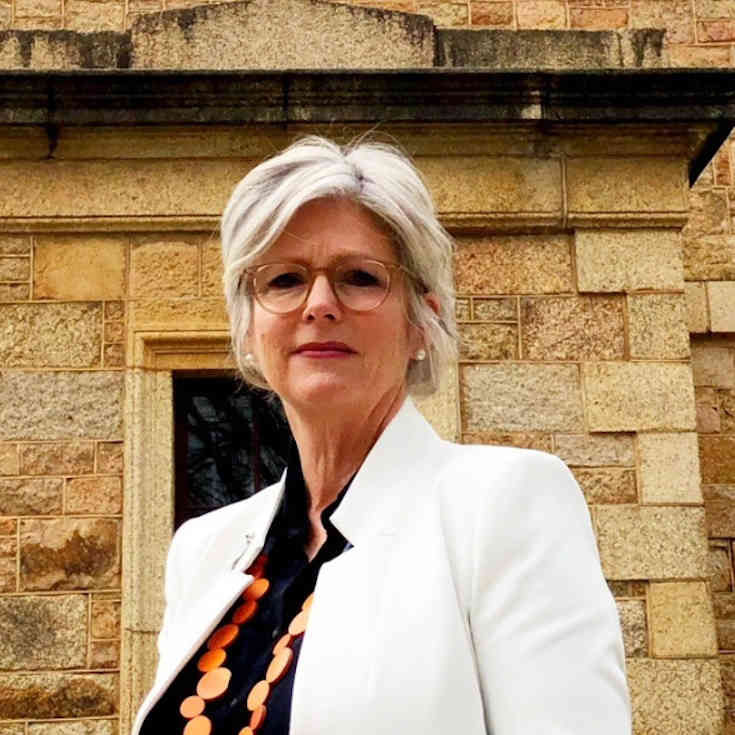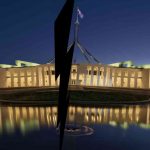How much do you trust politicians? Do you think we need ways to prevent corruption in politics?
There are ways to achieve this. The question is, why is the Federal Government avoiding scrutiny on integrity and corruption?
But Independent MP Helen Haines (pictured) has a proposal that all honest politicians should support.
Australians don’t trust politicians!
Public opinion polls consistently show politicians to be among the least trusted of all professions.
In several recent surveys, Federal MPs have been placed in the bottom 20%, alongside car salesmen and various business people (stockbrokers, insurance brokers, real estate agents and advertisers).
The Covid pandemic has changed this a little, as people have expressed increased trust in governments and the medical professionals who are advising them. But politicians themselves are still not considered trustworthy.
Is it any wonder why?
Being a member of parliament is an important and honourable profession – at least it ought to be. I suppose most MPs seek election because they want to serve their local community. But somehow the pressure, the lobbying by donors and interest groups, and the natural desire to be re-elected, seem to take their toll and decisions of doubtful integrity are made.
This present government seems prone to issues where its motives are questionable:
- The Commonwealth’s purchase of land for the Western Sydney airport included paying 10 times market value for land owned by a Liberal Party donor and the involvement of federal MP Angus Taylor in attempts to lobby on behalf of another wealthy landowner.
- A 2018 purchase of irrigation water from a company founded by Energy minister Angus Taylor has been much criticised for a questionable process and poor value for money.
- The Auditor-General found that the The Community Sport Infrastructure Grant Program made grants to sporting bodies using an inadequate process that wasn’t based on merit. This process (dubbed “sports rorts”) biased the grants in a way that appeared to meet political objectives, and led to the resignation of Sports Minister Bridget McKenzie, but also apparently involved an advisor in the Prime Minister’s Office.
- Angus Taylor used a forged document to falsely accuse Sydney Mayer Clover Moore of expensive (and climate harmful) air travel. The source of the forgery has never been revealed.
- Australia’s abysmal performance on addressing climate change may be explained by the thick web of documented connections between coal industry lobby groups and this present government.
- Historical sexual assault allegations against former Attorney-General Christian Porter have never been investigated fully, and so haven’t really been laid to rest.
- The Australian National Audit Office found that distribution of a $389m car park construction fund during the 2019 election campaign was baased on coalition held marginal electorates rather than actual need. Again, an advisor from the PM’s office was involved in the allocation, but this time no-one has resigned over the affair.
The obvious answer: a federal Integrity Commission
Most states have an Independent Commission Against Corruption (ICAC) capable of investigating corrupt actions of parliamentarians. Many commentators believe the Federal Government should establish an ICAC too; for example, the Australia Institute has been pushing the idea since 2017. And a 2019 survey showed that 80% of Australians support the establishment of a Federal Integrity Commission.
Responding to these pressures, the government announced in December 2018 it would establish a Commonwealth Integrity Commission (CIC), and released a discussion paper for public consultation. 3000 submissions criticised the government’s proposal as being weak and ineffectual.
No further proposals were released for almost two years, despite many calls for action. The government continued to promise action, but said it needed time to fully consult.
Enter Helen Haines
Finally Independent MP Helen Haines gathered a group of “constituents, esteemed judges, ethicists, legal academics, and MPs across the parliament – including government backbenchers – to write a bill we can all get behind”. She tabled the Australian Federal Integrity Commission Bill in Parliament in late 2020.
A week later, the government published its own bill for public consultation. Again it wasn’t well received, and a group of parliamentarians, former judges and police said the government’s proposal would be ineffective. Everyone seems to agree that Helen Haines’ bill is what the parliament and the country needs.
But her bill is going nowhere. As recently as late August, she tried to get the parliament to debate her bill, but the government refused.
On Wednesday 8th, this week, it will be 1,000 days since the government announced its weak proposal, but nothing has eventuated. The 2021 budget didn’t include any provision for the Commission.
The government proves the point
The government’s announcement of a weak Commission, and its failure to deliver even on that undertaking, combined with the list of government scandals, serve to show why an effective Integrity Commission is needed more than ever.
It isn’t hard to imagine why the government may be unwilling to give the Australian people what most of us want.
Don’t let the matter rest
You and I can play a part in this.
- Go to Helen Haines’ website and read about her bill and the government’s refusal to debate it.
- Write to the Prime Minister telling him of your concerns and urging him to take decisive action before the next election.
- Most importantly, vote for a candidate who will work to clean up government, including the establishment of the Australian Federal Integrity Commission.
If the government continues to behave in the way it has, #VoteThemOut.
References
Public opinion:
- RANKED: Australia’s 20 most trusted professions. Business Insider, May 2015.
- Australia’s most and least trusted professions: politicians are on the rise but nurses still dominate. News.com, May 2016.
- Roy Morgan Image of Professions Survey 2017. Roy Morgan, June 2017.
- The Most and Least Trusted Professions in Australia 2019. Australian Council of Professions, September 2019.
- Trust in government hits all time low. Australian National University, December 2019.
- Australians’ trust in governments surges to ‘extraordinary’ high amid Covid. The Guardian, December 2020.
- Roy Morgan Image of Professions Survey 2021. Roy Morgan, April 2021.
- Australia’s most and least trusted professions. 7 News, April 2021.
- Poll: 80% of Australians support a Federal Integrity Commission with strong powers. The Australia Institute, April 2019.




